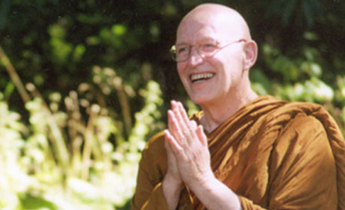Don’t Doubt; Trust Your Intuitive Sense

Reflect on the mental state you are in. Just observe that it’s like this. So
the sense of the paccuppanna-dhamma, here and now, the truth of the
way it is, is recognizing how the state of mind is.
When you grasp things you become confused: ‘Should I practise ānāpānasati? Concentrate on
the body? Listen to the sound of silence? What should I do next?’ Just observe this kind of doubting, uncertainty, or mental confusion as a mental state, not trying to resolve it, but just recognize it’s like this –
not knowing what to do. So while feeling uncertain, not-knowing, you observe this sense of not-knowing or confusion.
With the intellect, with the reasoning mind, we want clarity, we want answers to questions, solutions to problems. There is desire to know ‘what should I do first?’ I might say, ‘Well, do ānāpānasati first,
and then after you get to a certain level of calm do the reflection on the body.’ So you are quite willing to follow instructions, because it gives you a sense of security if you know exactly what I expect you to do, because you don’t trust yourself, your intuitive sense of how it is.
By no longer just wanting recipes or formulas or certainties for meditation, the more you meditate, you can understand right view as uncertainty, not-knowing. Uncertainty is no longer something resisted or rejected or a source of suffering; it is just the way it is. It’s what you can know directly at this moment and it may not give you a sense of exactly how it is right now, but it’s like this. So that is putting the onus back on to you to trust your intuitive sense rather than always be doubting,
wanting the teacher to tell you, or wanting to follow instructions – which we are all quite conditioned to do. Instead you open to the sense of uncertainty, insecurity, or confusion.
Ajahn Sumedho

